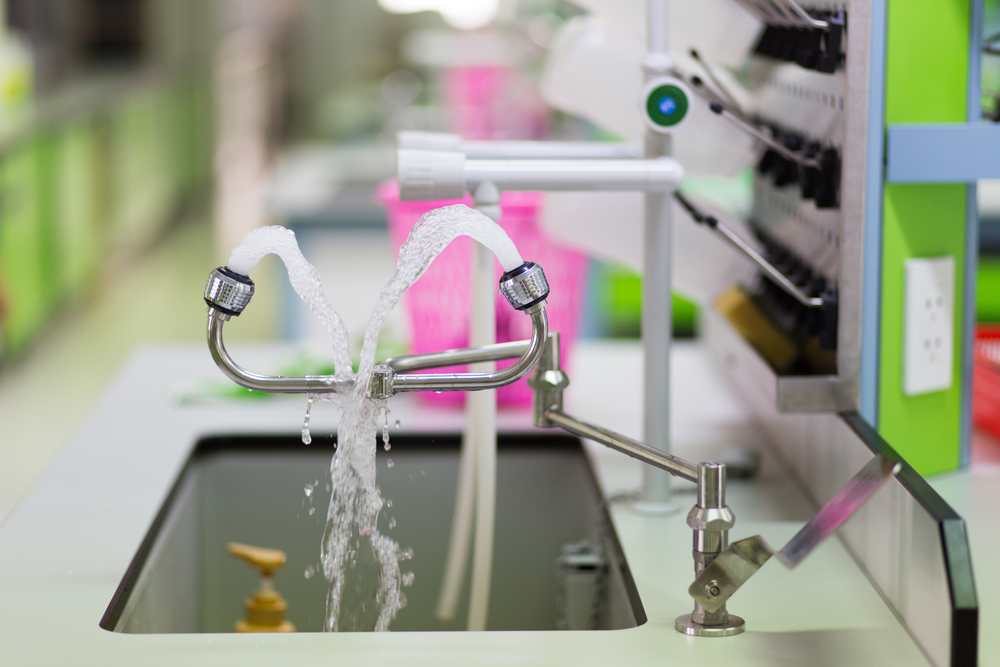Often, lab employees have to work with harmful chemicals, airborne agents, samples, contaminated tools and more. Depending on the industry or work, it’s impossible to find zero safety risks in each facility.
The most common lab injuries are burns, cuts, chemical irritation and inhalation. Therefore, it’s important for staff to introduce safety training topics and precautions to avoid these scenarios. Fortunately, there’s certain safety equipment that can keep workers safe and prevent injuries or accidents. In this post, we’ll explore what that equipment is and why it’s so important.
1. Safety Goggles
The eyes are among the body’s most sensitive parts. And they’re very vulnerable when handling chemicals or abrasive materials. Therefore, safety goggles is the difference between eye protection and a painful potential catastrophe. And we can’t minimize the importance of wearing safety goggles.
Safety goggles are the ideal gear for the eyes. They also shield both sides of the face to prevent anything from entering your eyes through the sides. Choosing the right pair for everyone is essential. Some goggles are meant to protect against impact or trauma. But, chemical splash goggles are perfect for anyone handling chemicals in their lab. Additionally, some goggles protect the eyes from lasers or UV light hazards.
2. Eye Wash Stations
Eye protection is mandatory when working in a lab. However, accidents can happen. If there are any chemical spills, or broken glass gets in the eyes, they must wash it out immediately. This reduces chances of chemical burns, blindness, and other permanent damage.
As such, eyewash stations are critical. Ideally, there should be multiple eye wash stations so that they can easily access them in an emergency.
3. Gloves
In a lab, hands are usually at the highest risk for contacting hazardous chemicals. However, wearing suitable gloves can greatly reduce the risk of injury. The primary types of disposable gloves are made of latex or nitrile. If you’re working with stronger chemicals or heat, however, you may need extra lab safety gear protection.
Gloves with stronger protection include chemical and heat-resistant models. Before selecting which type to wear, carefully read the appropriate material safety data sheets to determine the level of protection you’ll need while in the lab.
4. Lab Coats
Lab coats aren’t just fashion statements – they’re also indispensable lab safety equipment. Should a chemical spill occur, these long white coats help prevent dangerous liquids and particles from contacting your skin.
However, the coats are often made with absorbent materials. Therefore, staff should quickly remove them if a spill occurs. Doing so will prevent chemicals from soaking through to the skin. For ideal protection, button every lab coat completely.
5. Safety Showers
In the case of hazardous chemicals coming into contact with your skin, it’s extremely important to have a way to promptly rinse off the substances. As such, all laboratories should include a safety shower. After removing any contaminated clothing, the affected person can enter the shower and pull an overhead handle to drench themselves with water. Doing so will help prevent serious injuries associated with prolonged chemical exposure.
6. Fire Extinguishers
Fires can occur whenever handling electrical equipment or flammable items. So a fire extinguisher is a very important piece of lab safety equipment. Keep it in an easily accessible location. Also, all personnel should know how to use it. Additionally, stock your lab with the correct type of fire extinguisher based on the expected emergencies.
There are four main fire extinguishers to choose from, each of which has a different use. Class A extinguishers are used for ordinary combustibles, while Class B extinguishers are used for flammable liquids and gases. Class C fire extinguishers are for electrical equipment, and Class D extinguishers are for combustible metals and metal alloys. If you don’t use the right type of extinguisher, it may fail to put out the fire or even make it worse.
Conclusion
Obviously, labs can be very risky and hazardous places. However, with the right education, knowledge, equipment and commitment to safety, your lab can avoid any unfortunate scenarios. At SEPS, we refine our services to provide maximum safety, convenience and productivity to our clients. In addition, we place a tremendous importance on maintaining a workplace of absolute cleanliness, safety, sanitation and confidence.
